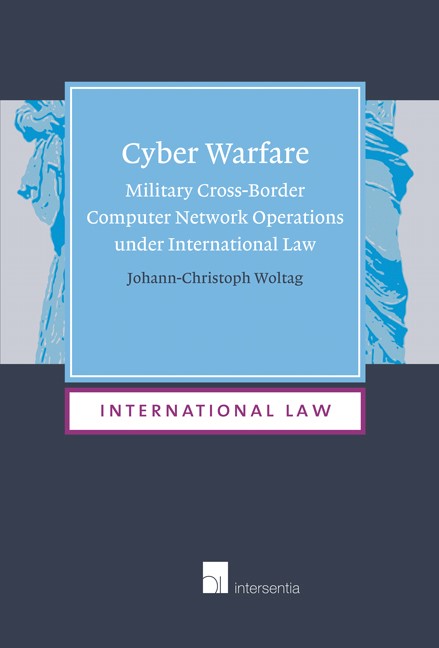Computer Network Operations Restrained
from PART III - CONCLUSION
Published online by Cambridge University Press: 28 November 2017
Summary
The goal of this study was to show that both general international law as well as international humanitarian law provide a framework to adequately constrain States in their application of military computer network operations during and outside of international armed conflict. The emergence of the technical infrastructure referred to as the Internet, or a social sphere considered as cyberspace, has not led actions performed in connection therewith to take place in a legal vacuum. On the contrary, the existing rules governing State conduct on the international level and during warfare are applicable thereto just as in other fields. This proves the assertions voiced both in legal scholarship and in the media, but also by several States, arguing for a requirement of an international cyber warfare convention or code of conduct, to have been made prematurely.
The inherent flexibility of international law allows it to regulate this novel instrument, as shown initially by demonstrating that the jurisdiction of States also extends over all activities performed via the Internet. For this purpose the Internet has been identified as a physical infrastructure territorialised along State boundaries. Further, it has been shown how States implicitly assert jurisdiction with respect to actions performed via the Internet. Since it is imbedded within all national jurisdictions it was also shown that the Internet cannot qualify as an international commons, and never has been. On the one hand this reveals that the Internet is not devoid of the exercise of State sovereignty. On the other hand the limitation of a potentially infinite jurisdiction granted by the effects principle through the requirement of a genuine link simultaneously illustrates that States are vested with governing power primarily only over those systems located within their territory and the operations running thereon. Operations on foreign systems only under special circumstances may be subject to the jurisdiction of a third State, thereby showing that State sovereignty and their sovereign equality is also to be respected in cyberspace. From this the concept of a territorial fragmentation of the Internet can be deduced.
Drawing upon this concept, the study developed the idea that even outside of armed conflict States can incur international responsibility for cross-border computer network operations.
- Type
- Chapter
- Information
- Cyber WarfareMilitary Cross-Border Computer Network Operations under International Law, pp. 273 - 278Publisher: IntersentiaPrint publication year: 2014

